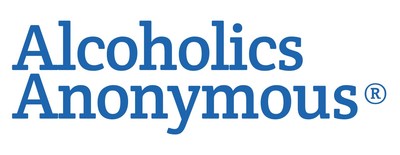A.A. welcomes anyone seeking help for a drinking problem and is not aligned with any religious tradition or beliefs.
NEW YORK, Aug. 15, 2023 /CNW/ — Since the founding of Alcoholics Anonymous (A.A.) in 1935, members of all faiths, beliefs, and traditions have found common ground in and benefited from the A.A. program of recovery. The A.A. fellowship has grown and expanded around the world, reaching people of all backgrounds, beliefs, and religious traditions who have found help and hope in the A.A. spiritual program as embodied in its Twelve Steps and Twelve Traditions.
It is a common misconception that Alcoholics Anonymous is a religious-based or Christian organization, but that is not the case. In fact, a fundamental principle of A.A. is that the Fellowship is not affiliated with any religion, nor is it allied with any sect, denomination, politics, organization, or institution. As stated in the A.A. Preamble, which is read at most local A.A. meetings, “The only requirement for membership is a desire to stop drinking. … Our primary purpose is to stay sober and help other alcoholics to achieve sobriety.” Thus, A.A. members need not hold any sort of religious or A.A.-defined spiritual beliefs to find help for their drinking. Each person determines their own pathway in their recovery from alcoholism.
At A.A. meetings, spiritual themes are often highlighted in members’ personal sharing, or in readings at meetings from the Twelve Steps and Twelve Traditions or the book Alcoholics Anonymous—commonly called “The Big Book.” But while there may be references to “God” and “higher power” in A.A. literature and at meetings, the essence of the A.A. program is one alcoholic helping another. Members find they can get and stay sober when they look for a power greater than themselves for help, which is part of the A.A. program, whether that be a god, spiritual principles, nature, or the fellowship itself. There is complete freedom for each person to determine these matters.
As stated in the A.A. pamphlet “The ‘God’ Word: Agnostic and Atheist Members in A.A.”:
There is room in A.A. for people of all shades of belief and non-belief. Many members believe in some sort of god, and we have members who come from and practice all sorts of religions, but many are also atheist or agnostic. It’s important to remember that A.A. is not a religious organization; we have a simple idea that there is a power greater than us as individuals. What we all have in common is that the program helps us find an inner strength that we were previously unaware of — where we differ is in how we identify the source.
More information about this topic and A.A. is available at aa.org. In addition to “The ‘God’ Word” pamphlet, A.A. literature also includes the pamphlet “Many Paths to Spirituality” as well as the chapter “We Agnostics” in the Big Book.
To find a local A.A. meeting, contact a local A.A. office or visit aa.org/meeting-guide-app to learn about the Meeting Guide app and how to download. The app can be used to search for various types of meetings.
Founded in 1935 on the principle of one alcoholic helping another to achieve sobriety, Alcoholics Anonymous is an effective and enduring program of recovery that has changed countless lives and has always been committed to making its program of recovery available to anyone who reaches out for help with a drinking problem.
Contact:
Public Information Desk
[email protected]
(212) 870-3119
![]() View original content to download multimedia:https://www.prnewswire.com/news-releases/understanding-alcoholics-anonymous-and-spirituality-301901445.html
View original content to download multimedia:https://www.prnewswire.com/news-releases/understanding-alcoholics-anonymous-and-spirituality-301901445.html
SOURCE Alcoholics Anonymous World Services, Inc.



